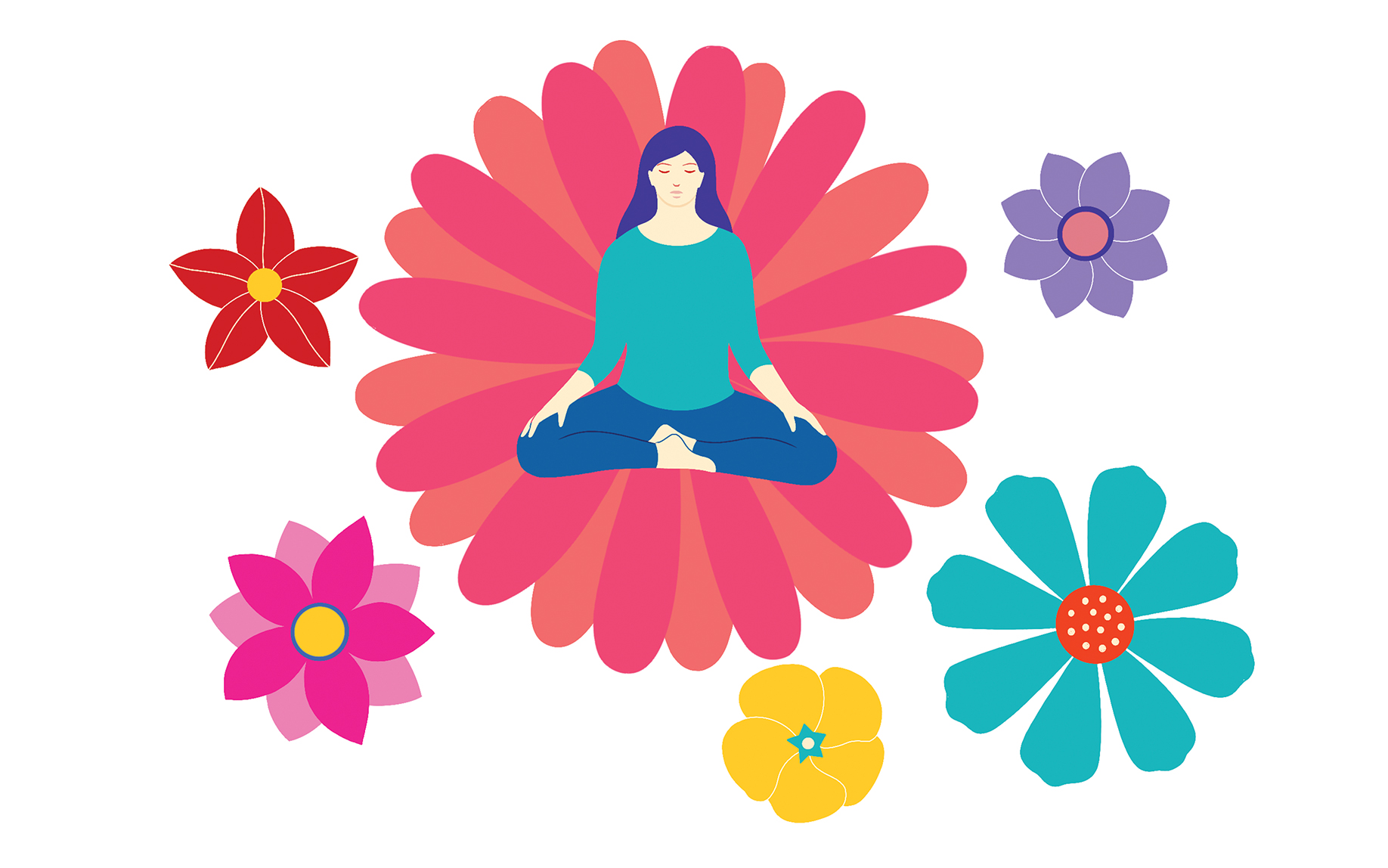Everyone needs their own Self-Care Plan, otherwise known as a Coping Strategy. If you’re looking to create a Self-Care Plan, start by defining self-care, examining the reasons why it’s so hard to consistently engage in self-care practices, and explore why self-care does not need to be an individual pursuit.
Begin to shift toward looking at self-care as a long-term pursuit, one in which taking care of our inner and outer selves are equal parts of the equation. With these easy steps, we’ll learn how to develop coping strategies that can help us and others in our community weather the struggles of self-care with grace and steadiness.
Three Reasons You Need a Self-Care Plan
A Self-Care Plan is an intervention tool that keeps you from being completely sucked into the vortex, saving you when you find yourself standing on the precipice gazing into the dark abyss. It’s a fail-safe, created by you, and filled with your favorite self-care activities, important reminders, and ways to activate your self-care community.
1) Customizing a Self-Care Plan is a preventative measure.
By designing a roadmap that is unique to you, in moments when you’re NOT in crisis, you’re directing your best self to reflect on what you may need (and have access to) in your worst moments. The reality is that only YOU know how intense your stress levels can get and what resources are available to you. Write that sh*t down.
2) Having a plan takes the guesswork out of what to do and where to turn in moments of crisis.
From a mindfulness point of view, it helps you respond instead of react to the situation at hand. When you have a plan in place, you’ll feel more in control of your circumstances and life won’t feel quite as chaotic. (It also makes it easier to ask for help from those you share your plan with.)
3) A Self-Care Plan helps you stay the course.
You’ll find it far easier to stick to your personal care strategy and avoid falling into the trap of making excuses. Having a plan helps you establish a routine, ensuring that you and your self-care partners don’t wind up in isolation, but rather check in with each other, hold each other accountable, and share the responsibility to support one another.
How to Create A Self-Care Plan
Your Self-Care Plan is a roadmap that you can carry in your back pocket. It’s there to help you walk your talk as well as help you find your way back to equilibrium by providing a clearly defined route back home if you find yourself on off-track.
Creating and following a plan helps you balance your mental, physical, and emotional needs while reminding you of the important people in your support system and the self-care goals you wish to accomplish.
How do you begin creating a Self-Care Plan?
1) First, create an activity list organized around different parts of your life: I’ve found that the easiest way to start is by breaking up this daunting task into several categories, for example:
- Work
- Physical Fitness
- Emotional Life
- Relationships & Community
For each area above, write down the activities or strategies that you can call on, that are authentic to you and contribute to your wellbeing.
Some examples we’ve discussed over the past weeks include spending time with friends, eating healthy, being active, mindfulness meditation, and finding the confidence to create healthy boundaries (here’s a template). Have fun, be creative, and most importantly, be real with yourself about what works for you and what doesn’t.
2) Second, note any barriers that may be in your way and how to shift them. As you write down each activity, ask yourself what barriers might get in the way of you being able to accomplish it. Then, try to strategize ways that you might be able to shift these barriers (FYI, this works even better when you do so with a friend, partner or community!). If you find that you can’t shift the barriers, feel free to adjust the activities. Your Self-Care Plan is NOT written in stone! It’s meant to be a living, breathing guide that adapts as your life circumstances and demands change.
3) Third, share your plan with your closest friends. Don’t forget to rely on your network of self-care buddies, your community of care. Share a copy of your Self-Care Plan with them and ask them to hold you accountable. Encourage them to create their own Plan and share it with you so you can do the same for them.
Example Self-Care Plan
Category: Emotional Life
Activities
1) Develop friendships that are supportive.
2) Write down three good things that you do each day.
3) Do something that brings you joy (Go to the movies, sit in a café, hit the beach, or set off on a hike).
4) Regularly meet with your social group/community of care.
Barriers
1. Your friendships are not equal in “give and take.” Shift it: define expectations with your closest friends. Don’t assume your friends know what you need from them.
2. You’re in the habit of negative self-talk. Shift it: every time you catch yourself saying something negative to yourself, say the exact opposite to yourself.
3. Don’t have a babysitter or the ability to get away for the evening. Shift it: Activate your self-care community
4) My friends or self-care network don’t have time to meet. Shift it: Set up a meet-up in advance and regularly. Create a monthly calendar.
Make it Visual
I always suggest that, if possible, you make your Self-Care Plan visual. Think of it as your very own personal self-care infographic.
Try this:
1) Start by jotting down a list of keywords or phrases from the activities list you created—choose whichever words resonate with you the most.
2) Then, grab a white piece of paper or a posterboard and transform these into graphic elements. Go ahead and use different colors, drawings, photos, whatever works for you to create visual cues that resonate with you and your plan.
Once you complete your masterpiece, put it somewhere you’re sure to see it every day because doing so will help you think about and (re)commit to your strategies. A byproduct of keeping it visible is that others will see it, too, and this will encourage them to ask about it, reflect on it, support your efforts, and, just maybe, even get them thinking about creating their own self-care vision.
Sticking to Your Self-Care Plan
Just like an athlete who trains for a competitive event, Self-Care Plans require that you practice the activities regularly. Be realistic with yourself by remembering that it takes time for a new practice to become a routine. There will be moments when you falter and that’s okay. We’re all human. Don’t punish yourself, but instead refocus and recommit to your plan. This way, if you find yourself on the edge of that void, staring it down, you’ll be prepared. How do you get yourself back on track when you falter? The answer to that question will be different for everyone, and will depend on what’s in your Self-Care Plan. Here’s what works for me:
When I realize I’m beyond the edge in a black hole, this is LITERALLY what I do: I have an old fashioned egg timer (you can use your phone timer, too) and I set a timer and allow myself 30 minutes (whatever time works for you) to feel really sorry for myself and mad at myself, and beat myself up if I need to. Sometimes I even write it all down. It’s ugly. Usually, by 15 minutes in I’ve exhausted myself. And then I MAKE myself do something that makes me happy, even if I’m not in the mood. Last week it was playing Al Green’s “Love and Happiness” in the kitchen super loud and dancing. Sometimes it’s pulling my husband in to swing dance to the Stray Cats with me.
When you just allow yourself to be in the vortex and really lean into it, you are usually ready to finally extract yourself. And by having a plan in place for those moments when all seems lost, you can more easily find your way back to center.
As Louis Pasteur once observed, “Chance favors the prepared mind.”
read more
The Power of Sustainable Self-Care
Shelly Tygielski explores how consistently showing up for yourself first lays the foundation for our life’s purpose—showing up for others—and how to create your own self-care practice.
Read More
The Six Seconds in Between: Finding Time for Radical Self-Care in an Overscheduled World
Mindfulness is an indispensable leadership skill that takes moments to practice, and it can shift the paradigm of our working culture.
Read More
How to Hold Boundaries with Skill and Care
Setting and holding boundaries can be challenging, even if you’re not a people-pleaser. The key is communicating clearly to cut down on conflict and increase freedom—for those on both sides of the line.
Read More










